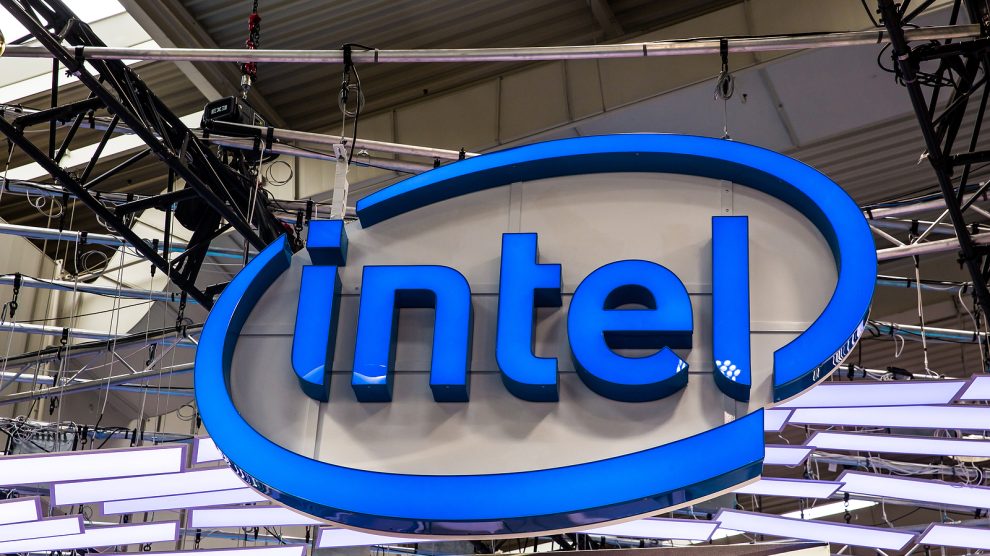A new Intel facility in Poland will serve as a catalyst for additional ecosystem investments and innovation across the European Union.
Just over a year after the European Union pitched its Chips Act, which it hopes will bolster Europe’s competitiveness and resilience, and wean it off its reliance on Asian chip makers, US technology giant Intel has announced plans to invest up to 4.6 billion US dollars in a new cutting-edge semiconductor assembly and test facility near Wrocław, Poland.
Intel says that the facility will help meet critical demand for assembly and test capacity that the firm anticipates by 2027.
When completed, the facility will support approximately 2,000 Intel employees, while the construction of the facility is also expected to create several thousand more jobs, in addition to eventual hiring by suppliers.
- The EU is pinning its tech hopes on a 43 billion euros ‘Chips Act’
- Why Visa chose Poland as site of first technology and product hub in CEE
- International banking groups maintain strong position in CESEE, despite geopolitical challenges
Design and planning for the facility will begin immediately, with construction to commence pending European Commission approval. Given Europe’s eagerness to become a chip making hub, this is likely to come quickly.
“Poland is already home to Intel operations and is well positioned to work with Intel sites in Germany and Ireland. It is also very cost-competitive with other manufacturing locations globally and offers a great talent base that we are excited to help to grow,” says Intel CEO Pat Gelsinger. “We’re grateful for the support from Poland as we work to grow the local semiconductor ecosystem and contribute to the EU’s goal of creating a more resilient and sustainable semiconductor supply chain.”
Intel’s planned investment in Poland, combined with its existing wafer fabrication facility in Leixlip, Ireland, and its planned wafer fabrication facility in Magdeburg, Germany, will help create a first-of-its-kind end-to-end leading-edge semiconductor manufacturing value chain in Europe. It will also serve as a catalyst for additional ecosystem investments and innovation in Poland and across the European Union.
According to Mateusz Morawiecki, prime minister of Poland, “We are pleased that the largest greenfield investment in the history of Poland is being led by Intel, a Silicon Valley legend known for its innovation. Chips and semiconductors are critical technologies in the 21st century and we are excited to expand Poland’s role in the global semiconductor supply chain and help to establish the country as an economic trendsetter.”
Why Poland?
Poland was chosen as the location for the new site for several reasons, including its infrastructure, strong talent base and excellent business environment.
The new site is also well positioned to work with the wafer fabrication site planned for Germany and the existing leading-edge wafer fabrication site in Ireland. This proximity will enable close collaboration between the three manufacturing sites and help increase resilience and cost efficiency of the European semiconductor supply chain.
Wafer fabrication facilities (also known as fabs) create chips on silicon wafers through various advanced chemical, mechanical and optical processes.
Assembly and test facilities, such as the one planned near Wrocław, receive completed wafers from fabs, cut them into individual chips, assemble them into final products and test them for performance and quality. The finished chips are then shipped to customers. In addition to completed wafers, the facility will also be able to accept individual chips and assemble them into final products. The facility will be able to accept wafers and chips from Intel, Intel Foundry Services or other foundries.
The permanent jobs that the facility creates will range from engineers and business support functions to factory operators and equipment technicians. Poland offers a strong technical talent base and several excellent universities with strong engineering programs.
This strong workforce and talent base has been critical to Intel’s 30 years of operation in Poland, including its significant research and development operations in Gdańsk, the company’s largest R&D facility in Europe with nearly 4,000 workers.

Addressing global disruptions
Recent global disruptions show the critical need to build a more resilient supply chain for semiconductors. Intel supports the European Union’s goal to reclaim 20 per cent of global semiconductor manufacturing capacity by 2030 and is investing in a global semiconductor supply chain that is resilient and geographically balanced.
Intel believes that its investments in Poland and in Europe can act as a catalyst for further investments by ecosystem companies and for building and attracting the talent needed to support a thriving European semiconductor industry.
Intel says that it is committed to sustainability and will adhere to high environmental standards across its global operations and its European operations, including at the planned facility near Wrocław.
The facility will be constructed according to green building principles, minimising its carbon footprint and the impact on the environment.
Unlike many news and information platforms, Emerging Europe is free to read, and always will be. There is no paywall here. We are independent, not affiliated with nor representing any political party or business organisation. We want the very best for emerging Europe, nothing more, nothing less. Your support will help us continue to spread the word about this amazing region.
You can contribute here. Thank you.


